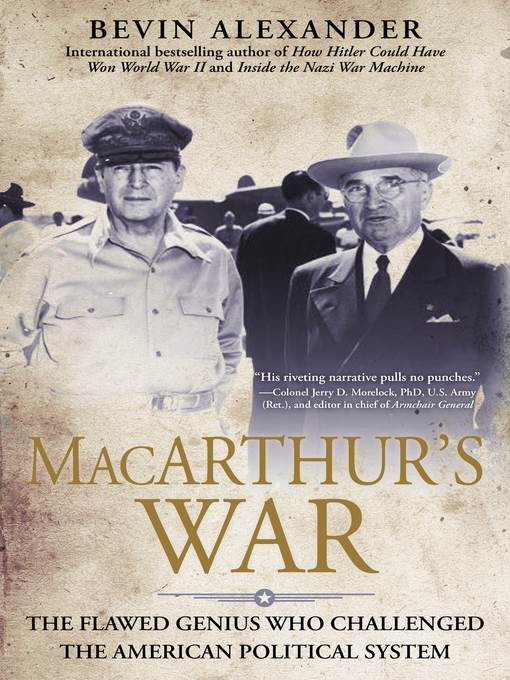
Macarthur's War
The Flawed Genius Who Challenged the American Political System
کتاب های مرتبط
- اطلاعات
- نقد و بررسی
- دیدگاه کاربران
نقد و بررسی

April 1, 2013
Versatile military historian Alexander (Sun Tzu at Gettysburg: Ancient Military Wisdom in the Modern World, 2011, etc.), a Korean War veteran, takes on the perilous confrontation between the U.S. military and the civilian command during that war. The author sets the stage for the buildup to the Korean conflict with an engaging clarity, drawing many good lessons from the time--e.g., the tragic loss of China as an ally, the stunningly cavalier regard for the use of nuclear weapons and the fallibility of military "professionals." First, Alexander backtracks to tell the story of the Far East pickle and how the U.S. was so fixated on its anti-communist paranoia that it failed to grasp that Mao Zedong had broken with the Kremlin and was making sincere attempts at rapprochement with Washington by 1949, rebuffed by President Harry Truman and Secretary of State Dean Acheson. Containment of communism was the official policy, as well as driving the North Koreans back to the agreed-upon 38th parallel after Kim Il-sung led an invasion of the south in June 1950. However, Gen. Douglas MacArthur, the U.S. commander in the Far East, World War II hero and now "proconsul" of occupied Japan, had other ideas--namely, that the U.S. should not stop at the 38th parallel but should unite the whole country, China be damned; moreover, he made alarming, erroneous statements about China's imminent invasion of Formosa (Taiwan). MacArthur could not be ignored, especially after engineering his brilliant invasion at Inchon, which only increased his national stature. Alexander tracks MacArthur's persistent rogue statements, his visit to Chiang Kai-shek and his frank insubordination for a terrific depiction of a clash of titan egos. A well-focused cautionary tale about the checks and balances of power.
COPYRIGHT(2013) Kirkus Reviews, ALL RIGHTS RESERVED.

























دیدگاه کاربران